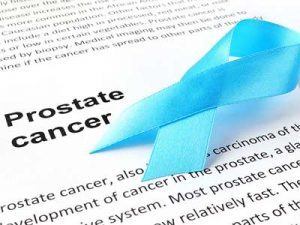- Home
- Editorial
- News
- Practice Guidelines
- Anesthesiology Guidelines
- Cancer Guidelines
- Cardiac Sciences Guidelines
- Critical Care Guidelines
- Dentistry Guidelines
- Dermatology Guidelines
- Diabetes and Endo Guidelines
- Diagnostics Guidelines
- ENT Guidelines
- Featured Practice Guidelines
- Gastroenterology Guidelines
- Geriatrics Guidelines
- Medicine Guidelines
- Nephrology Guidelines
- Neurosciences Guidelines
- Obs and Gynae Guidelines
- Ophthalmology Guidelines
- Orthopaedics Guidelines
- Paediatrics Guidelines
- Psychiatry Guidelines
- Pulmonology Guidelines
- Radiology Guidelines
- Surgery Guidelines
- Urology Guidelines
Clinical guidance for radiation therapy after prostatectomy: ASTRO and AUA update

LINTHICUM, Md. and ARLINGTON, Va. —The American Society for Radiation Oncology (ASTRO) and the American Urological Association (AUA) today announced updates to their joint clinical guideline on adjuvant and salvage radiotherapy after prostatectomy in patients with and without evidence of prostate cancer recurrence to include new published research related to adjuvant radiotherapy.
The Adjuvant and Salvage Radiotherapy after Prostatectomy: ASTRO/AUA Guideline (available online in the Journal of Urology and in Practical Radiation Oncology) was amended as follows:
- Guideline Statement 2 was modified to account for the latest data from three randomized controlled trials evaluating the use of adjuvant radiotherapy, including new long-term data from the ARO 96-02 trial, which was incorporated to update the existing evidence base.
- Statement 2: Patients with adverse pathologic findings including seminal vesicle invasion, positive surgical margins, and extraprostatic extension should be informed that adjuvant radiotherapy, compared to radical prostatectomy only, reduces the risk of biochemical (PSA) recurrence, local recurrence, and clinical progression of cancer. They should also be informed that the impact of adjuvant radiotherapy on subsequent metastases and overall survival is less clear; one of three randomized controlled trials addressing these outcomes indicated a benefit, but the other two trials did not demonstrate a benefit. However, these two trials were not designed to identify a significant reduction in metastasis or death with adjuvant radiotherapy.
- Guideline Statement 9 is a new guideline statement written to include outcome data from two randomized controlled trials (RTOG 9601 and GETUG-AFU 16), which evaluate the effects of hormonal therapy on overall survival, and on biochemical and clinical progression among patients who received salvage radiotherapy after prostatectomy. Based on findings from these randomized controlled trials, it was concluded there was sufficiently strong evidence overall to encourage hormonal therapy to be offered to patients who are candidates for salvage radiotherapy. When offered, the clinician must provide information about benefits and harms associated with this therapy, particularly discussing the improved freedom from disease progression documented in both trials, and improved overall survival as reported in RTOG 9601.
- Statement 9: Clinicians should offer hormonal therapy with radiotherapy to patients who are candidates for salvage radiation therapy. Ongoing research may someday allow personalized selection of hormonal or other therapies within patient subsets.
- The new guidance states that patients with adverse pathologic findings including seminal vesicle invasion, positive surgical margins, and extraprostatic extension should be informed that adjuvant radiotherapy -- compared with radical prostatectomy only -- reduces the risk of biochemical (PSA) recurrence, local recurrence, and clinical progression of cancer.
- A new guideline statement includes outcome data from two randomized controlled trials (RTOG 9601 and GETUG-AFU 16) that evaluate the effects of hormonal therapy on overall survival, and on biochemical and clinical progression among patients who received salvage radiotherapy after prostatectomy. The trials found sufficiently strong evidence, overall, to encourage the offering of hormonal therapy to patients who are candidates for salvage radiotherapy.
In addition to the guideline statements, new information related to genomic classifiers, as predictors of treatment effectiveness, was added to the guideline future research needs. Further study in this area is needed to determine whether a genomic classifier is predictive of outcomes in a yet to be treated patient and whether it is predictive for the efficacy of a particular treatment.
“Evidence from three, well-established randomized trials now confirm significant improvements in biochemical recurrence-free survival among patients with adverse pathological features with the use of adjuvant radiotherapy,” said Ian Thompson, MD, co-chair of the guideline panel and professor and chairman of the urology division at the University of Texas Health Sciences Center at San Antonio, Texas. “Our expectation is this guideline is fully aligned to the latest science and provides physicians with a relevant blueprint for the use of radiotherapy after prostatectomy.”
“As research in prostate cancer evolves and improves, data continue to accumulate in support of radiotherapy following radical prostatectomy. We now know that radiotherapy and the combination of hormone therapy with radiation, following radical prostatectomy, have contributed to even more favorable outcomes for patients than seen previously,” said Richard K. Valicenti, MD, FASTRO, co-chair of the guideline panel and professor and chairman of radiation oncology at the University of California-Davis Comprehensive Cancer Center in Sacramento, California. “With the current update, this collaborative guideline now reflects nearly three decades of multidisciplinary research.”
The full text of the amended evidence-based Adjuvant and Salvage Radiotherapy after Prostatectomy Guideline is now available online in the Journal of Urology and in Practical Radiation Oncology.
Authors of this Amendment included Thomas M. Pisansky, MD, Ian M. Thompson, MD, Richard K. Valicenti, MD, Anthony V. D’Amico, MD, Shalini Selvarajah, MD, MPH.
For further reference log on to: DOI: 10.1016/j.prro.2019.04.008

Disclaimer: This site is primarily intended for healthcare professionals. Any content/information on this website does not replace the advice of medical and/or health professionals and should not be construed as medical/diagnostic advice/endorsement or prescription. Use of this site is subject to our terms of use, privacy policy, advertisement policy. © 2020 Minerva Medical Treatment Pvt Ltd